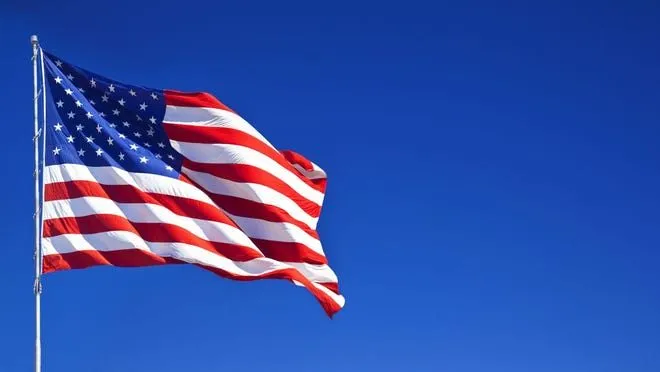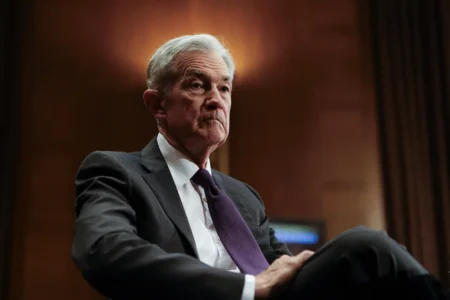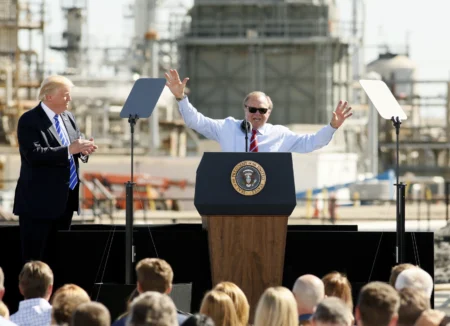US President Donald Trump has announced that he will begin the process of placing a 100 percent tariff on all movies made outside the United States. The decision, revealed on Sunday via Trump’s Truth Social platform, is aimed at protecting the American film industry, which he says is in decline.
Trump claimed that other countries are luring U.S. filmmakers with incentives. As a result, he believes Hollywood is losing its global leadership and this poses a risk to national security.
Trump Says Foreign Incentives Hurt American Filmmaking
In his post, Trump said, “The Movie Industry in America is DYING a very fast death.” He accused foreign governments of offering benefits to attract U.S. filmmakers, which he believes is damaging the U.S. economy and creative sector.
According to Trump, these offers from other nations are pulling American film studios out of the country. He pointed out that Hollywood and other film hubs in the U.S. are losing their influence and jobs to foreign markets.
He called the issue a “National Security threat” and said he has ordered officials to act right away.
Commerce Department to Lead Tariff Action
Trump said he has authorized both the Department of Commerce and the United States Trade Representative to take immediate steps. These agencies are now expected to start the formal process of imposing a 100% import tax on any movie not made on U.S. soil.
He ended his post with a strong message: “WE WANT MOVIES MADE IN AMERICA, AGAIN!”
The proposed tariff would likely apply to films from countries like the UK, Canada, India, South Korea, France, and more—all of which export films to the U.S.
Industry Experts Warn of Global Backlash
Many experts say this move could create major problems for the global film industry. The U.S. has long worked with international partners in filmmaking. Some of the biggest blockbusters are international co-productions, such as Dune, Avatar, and Mission: Impossible.
Tariffs could lead to a drop in international film releases in U.S. theaters, affecting streaming platforms like Netflix, Disney+, and Amazon Prime Video as well. Many of these platforms rely on a mix of local and global content.
Hollywood Faces Existing Challenges
The American movie industry has already been facing tough times. COVID-19 caused major disruptions, with many theaters closing and productions delayed. Even after reopening, box office numbers have not returned to pre-pandemic levels.
According to a report by the Motion Picture Association, global box office revenue dropped by more than 70% in 2020 and has only slowly recovered. Meanwhile, streaming services have changed the way people watch movies.
Some states in the U.S. offer local tax breaks to encourage filmmaking, such as Georgia and New Mexico. However, many foreign countries offer larger incentives and lower production costs, making them attractive to producers.
Tariff Policy May Face Legal and Economic Hurdles
Legal experts say that imposing a blanket 100% tariff on all foreign-made films could be challenged under World Trade Organization (WTO) rules. The U.S. is a member of the WTO, which regulates international trade agreements.
Also, there are fears that other countries may retaliate with their own tariffs on U.S. media exports. This could hurt the same industry Trump is trying to protect.
Economic analysts also question the impact on consumers. Movie ticket prices and streaming subscription fees may rise if companies pass on the higher costs to viewers.
Filmmakers React with Caution and Concern
So far, most Hollywood studios and film unions have not issued formal statements. However, some actors and independent filmmakers have voiced concern on social media, saying the policy may hurt global creativity and partnerships.
An anonymous producer told Daljoog News (daljoognews.com), “Most films today are made with talent and teams from all over the world. Tariffs like this could break that system and limit creative choices.”
Political Move Ahead of 2024 Election?
Some critics say the announcement is part of Trump’s larger 2024 campaign strategy. He has focused on bringing jobs back to the U.S. and has often criticized global trade deals that he sees as unfair.
While Trump remains a dominant figure in Republican politics, such moves may aim to strengthen his base by pushing economic nationalism and promoting “America First” policies.
Summary: What Comes Next?
Trump’s push for a 100% tariff on foreign-made films marks a bold move in his ongoing effort to reshape U.S. trade and culture. While the move may appeal to some voters, it faces legal, economic, and industry challenges.
If the policy proceeds, it could change how Americans watch movies, how films are made, and how global partnerships in entertainment function.
As of now, no formal tariff has been implemented, but the announcement has already triggered strong reactions across the industry and beyond.







